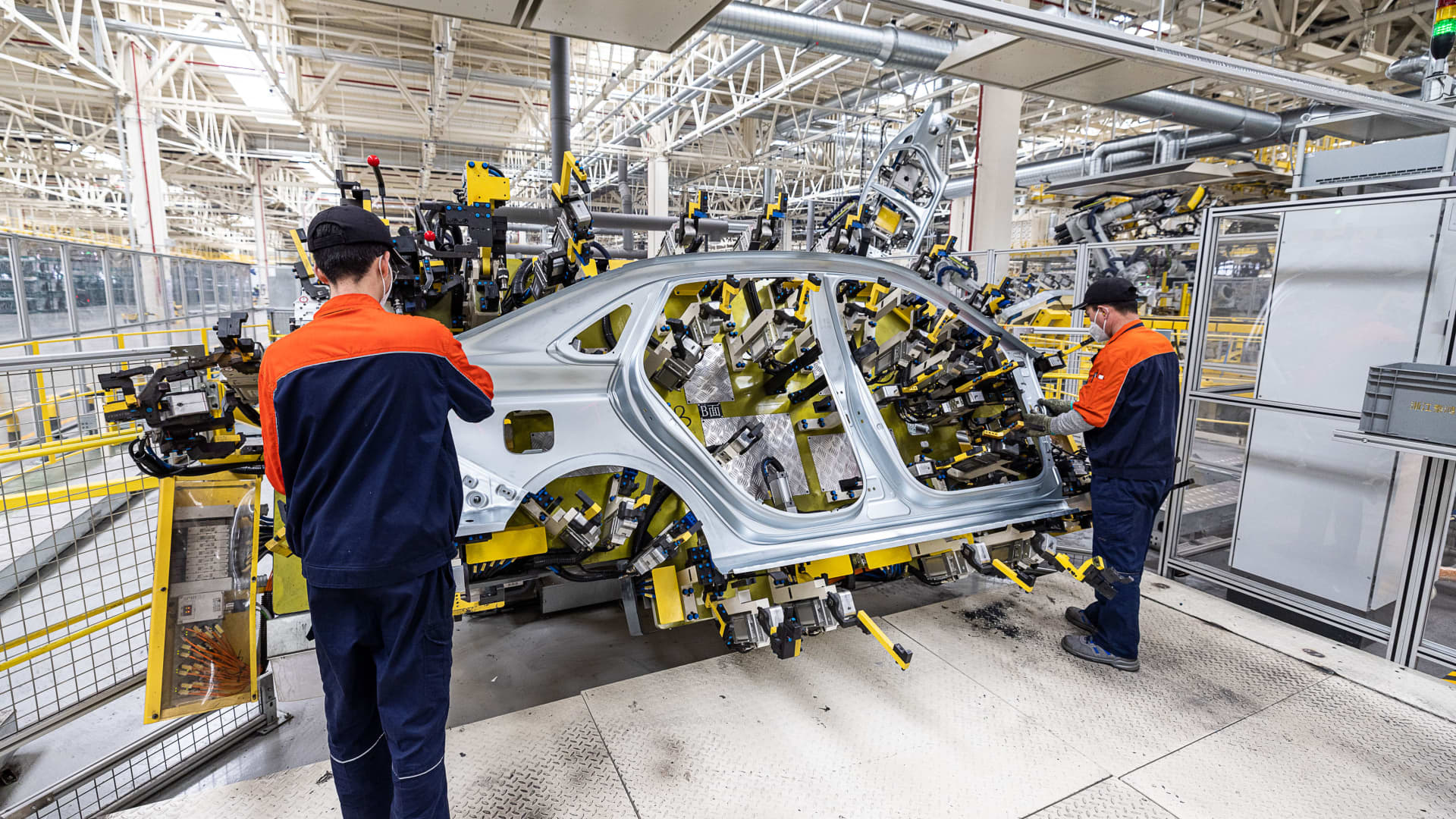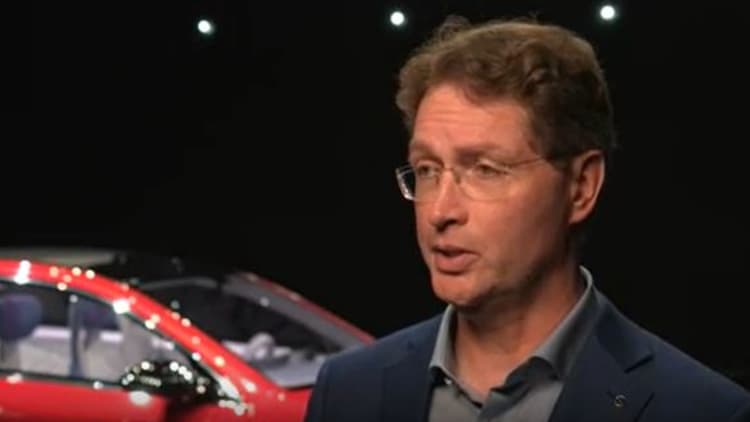European Union launches anti-subsidy probe into Chinese EVs

China’s automobile and component exports more than doubled in 2021 from a year ago, exceeding 30% growth in China’s exports overall, Bernstein analysts found.
Yi Fan | Visual China Group | Getty Images
The European Commission, the executive arm of the European Union, on Wednesday launched an investigation into subsidies given to electric vehicle makers in China, according to President Ursula von der Leyen.
Speaking at her annual State of the Union address at the European Parliament in Strasbourg, she confirmed the probe, saying: “Europe is open to competition but not for a race to the bottom.”
The unexpected announcement marks yet another bump in the road for EU-China relations and comes after the U.S. and Europe agreed in late May to reduce their dependency on Beijing — rather than completely cutting ties.
Autos stocks in Europe were flat during morning deals, erasing gains of over 1% in a largely down day for most sectors.
“We have to be clear-eyed about the risks we face,” von der Leyen said to a full house of lawmakers.
“Take the electric vehicle sector, it is a crucial industry for the clean economy with a huge potential in Europe, but global markets are now flooded with cheaper Chinese electric cars and their prices are kept artificially low by huge state subsidies.”
“This is distorting our market and as we do not accept this distortion from inside our market, we do not accept this from the outside,” she added.
The commission says an anti-subsidy investigation must impose any measures within 13 months from initiation. It says that provisional measures must be imposed no later than nine months, followed by four months to impose definitive measures if legally warranted.
Von der Leyen drew comparison to the impact on Europe’s solar industry and what could happen to the region’s automotive industry, both of which have faced robust competition from Chinese companies.
‘De-risk, not decouple’
The EU’s von der Leyen said the bloc must defend itself against unfair practices but stressed it was equally important to keep open lines of communication with Beijing.
“De-risk, not decouple. This will be my approach at the EU-China summit later this year,” she added.
Europe’s biggest car manufacturers said earlier this month that they were wary about the competitive threat posed by new Chinese companies as the automobile industry moves toward electrification.
Among the auto executives to acknowledge the challenge from China at the IAA Mobility conference in Germany, Volkswagen CEO Oliver Blume said the company had established a new China strategy this year to focus on developing technologies to cater specifically to Chinese demand.
— CNBC’s Silvia Amaro contributed to this report.










